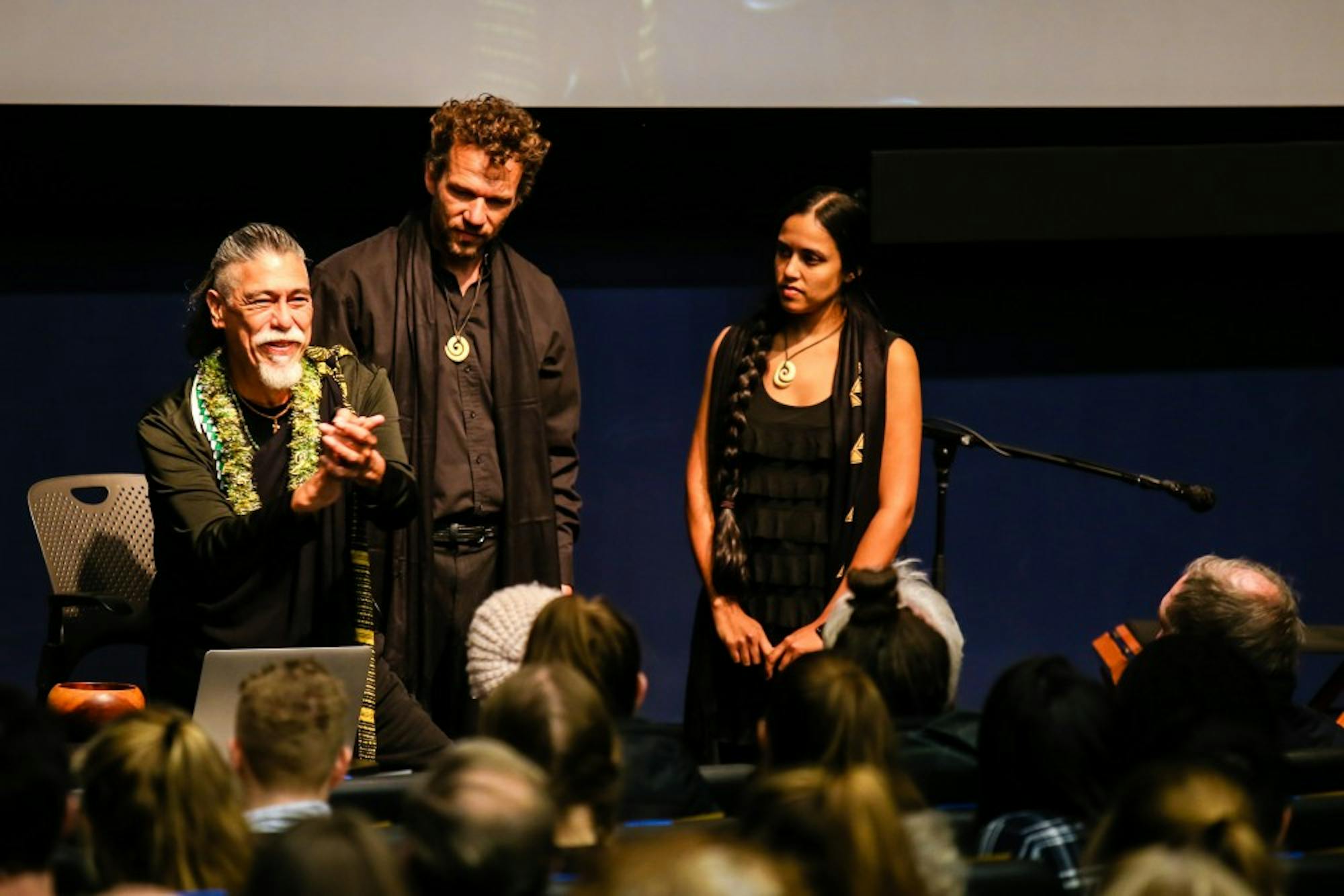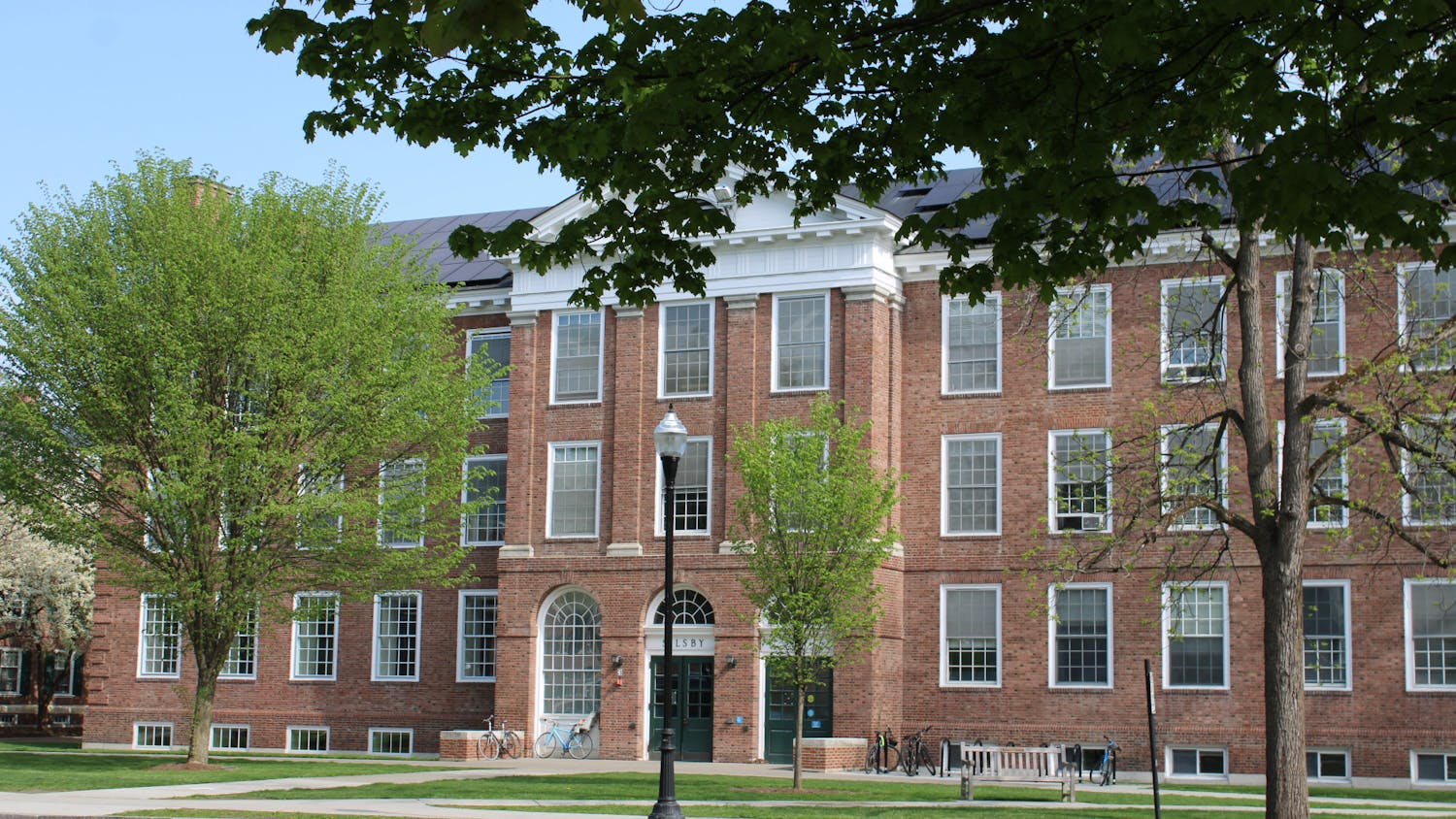On Monday evening, Dartmouth hosted Rev. M. Kalani Souza as the keynote presenter of the College’s 2018 Martin Luther King Jr. Celebration Feature Presentation. Over the weekend, Dartmouth held a wide variety of events in celebration of the holiday, including the keynote address, a series of sign-ins and multiple film screenings.
He opened his performance with a traditional Hawaiian prayer — vocals accompanied by a horn — which he explained “centered the mind and soul” before he began to speak.
Souza, a Native Hawaiian, is the founder of the Olahana Foundation, a nonprofit that helps coastal and island communities deal with climate change. He is also a storyteller and priest. Souza visited Dartmouth’s Native American House a few years ago and, despite an advancing and increasingly debilitating disease, Souza returned to the College to share his thoughts as part of this year’s Martin Luther King Jr. Day programming.
The night began with Maya Perkins ’20 singing about the struggle for freedom and then speaking on the need for collective action across communities in response to struggle.
“We need to globalize the way we think about the issues we face,” Perkins said in her speech.
Souza echoed Perkins’ focus on community and family, saying that the indigenous world-view emphasized connectedness.
“We have to do this thing not as institutions, but as family,” he said in his keynote address.
His themes of family and community stood in relation to the theme of the Martin Luther King Jr. celebration events this year, “Borders.”
Vice president for institutional diversity and equity Evelynn Ellis, who proposed the theme, said it is a pertinent topic in today’s political climate.
She added that these borders do not have to be physical walls but can also be challenges such as the inability for poverty-stricken individuals to send their children to the schools they choose.
“[We must] acknowledge the complexities and differences within various groups, and as a result, create more permeable group borders,” Perkins said in a later interview.
Between spoken thoughts, Souza sang a few of his songs and shared recordings. His lyrics emphasized the beauty of the earth, as well as issues of struggle and resistance. Souza’s speech lauded tolerance and optimism despite the pain of struggle.
Raleigh Nesbitt ’19 thought Souza’s optimism was vital in the face of struggle.
“I also took particular note of his outlook on a positive approach to activism,” Nesbitt said. “In the face of what often seems to be seems to be insurmountable injustice and oppression, [Souza] emphasized the importance of establishing, maintaining and relying on strong community ties to fight inequality.”
For some, the connection between the Native Hawaiian experience and King’s legacy can be hard to make.
“This [connection] is going to be a harder one to digest for some people,” said sociology professor Kathryn Lively following Monday’s event.
However, Ellis said there was a direct connection between Martin Luther King Jr. and Souza due to their similar focus on socioeconomic issues.
Though today King is known as a champion of the civil rights movement, Ellis said this portrayal of him neglects the main part of his work and legacy.
“King, just like [Souza], [was] aware that [social issues] impact poor people and marginalized people first, and it impacts them longer,” Ellis said. “They don’t recover, because they don’t have the resources, and the agencies that should be there to support them, they’re disappearing, and Americans are silent.”
Ellis added that she encourages students to find the connection between social issues, environmental issues and civil rights.
In Souza’s speech, he said that we needed to ask if women, children and the elderly were taken care of.
“If by your actions you are feeding a child [or] comforting someone, then this is time well spent,” Souza said.
He added that the interconnected nature of societal issues means that meeting these basic needs lead to more expansive solutions.
Reflecting on King’s legacy, Ellis, Perkins and Souza all encouraged continuing to fight against complacency.
Ellis said that she urges Dartmouth students, as privileged members of society, to not ignore the prevailing problems of today’s society.
“Those who have, it’s not just a cliché: you are obligated to get more,” Ellis said. “You are obligated to give more. To do more. I want our students, our faculty, our staff [and] our community members doing more.”
Martin Luther King Jr. Celebration events will continue throughout the next week, including the multi-faith celebration in Rollins Chapel on Sunday night.
Saba Nejad contributed reporting.




